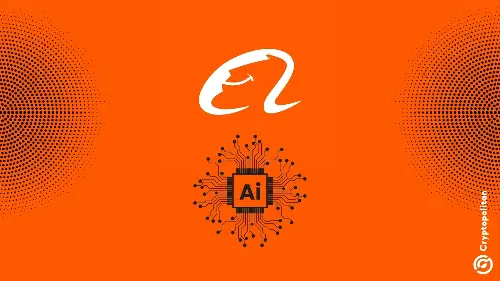
Alibaba Group Holding Ltd. unveiled the latest version of its artificial intelligence model, calling it Qwen3, as it ramps up its race in AI. The company announced the model on Tuesday, saying they are on par with the capabilities of DeepSeek’s AI systems.
Specifically, Alibaba says Qwen3 excels in math and computer programming, where accuracy and logic are important.
The tech giant also stressed that Qwen3 can be optimized much cheaper than large AI models. It’s a significant development, particularly when companies and developers seek cheaper, high-performing alternatives to pricey AI infrastructure.
QWEN3 contains two Mixture of Experts (MoE) models, a structure that breaks data processing down into smaller specialized processes. This makes the system faster and more intelligent, much like human experts focus on different aspects of a problem. The MoE approach has also been adopted by tech companies, including Anthropic and Google, with Alibaba demonstrating that it can stay current with the latest innovation trends worldwide.
Tech giants flood market with cheap AI
The Qwen3 models of Alibaba are launched in an era when AI competition is heating up, particularly after DeepSeek released its massive and low-end model. The success of DeepSeek demonstrated that building sophisticated AI systems doesn’t always have to be a multibillion-dollar project, leaving the door open for other players to innovate rapidly and cheaply.
In response, Chinese tech companies have swooped in with a tidal wave of fast-follow, inexpensive AI offerings. Alibaba’s Qwen2, for example, had already been available for some time.
Those models can understand and generate text, analyze pictures, recognize audio, and even process video while being light enough to run on smartphones and laptops. This focus on light models demonstrates a strategy to bring AI to everyone, not only big corporations owning powerful servers.
In March, Alibaba also launched an upgraded version of its AI assistant app Quark, featuring more intelligent features for common users. This new round of releases continues what we have seen from Alibaba regarding being fast, easy, and cost-effective with AI offerings.
Meanwhile, international competitors are accelerating. OpenAI, for example, is readying the release of a new “open” AI model that could even more closely resemble human thought, a move that was informed by DeepSeek’s success and Alibaba’s approach to open source.
Alibaba makes a big bet on artificial intelligence
Alibaba’s aggressive bets on AI are part of a broader change in the long-term business strategy. In February, CEO Eddie Wu declared that Alibaba’s new focus will be pursuing artificial general intelligence (AGI).
Such focus on AI also remakes Alibaba’s reputation after years of internal struggles and government scrutiny. Jack Ma, Alibaba’s co-founder and once China’s most famous entrepreneur, disappeared from public view after a battle with government regulators to control the private sector.
But that started to change earlier this year. Ma spoke at the company’s conference in early September, days before he was replaced as chairman, but he has since kept a low profile. In February, Ma and a gaggle of other top Chinese entrepreneurs participated in a high-profile meeting with China’s president, Xi Jinping.
The talk was all about new technology and innovation, as the government put some heft behind a push to support private businesses. This was considered a significant lift for Alibaba and the broader tech sector, which have been critical to China’s economic recovery.
However, with the release of Qwen3, Alibaba proves that it’s not only back but poised to lead the next wave of innovation in AI. With its focus on cheap, open, powerful AI models, Alibaba is positioning itself as a major global player, ahead of local rivals like DeepSeek and Western giants like OpenAI and Google.
Cryptopolitan Academy: Tired of market swings? Learn how DeFi can help you build steady passive income. Register Now
